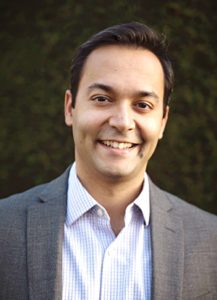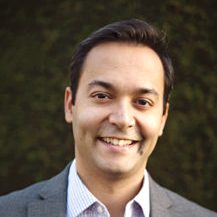July 1-5, 2024
Brussels, Belgium
EdMedia Speakers Test
Monday June 25th
Maria Beatrice Ligorio, University of Bari Aldo, Italy
A Model for Blended Course: Psychological Aspects

Maria Beatrice Ligorio, University of Bari Aldo, Italy
The crises in the job market recorded in the last decade has psychological implications in particular for young people attempting to enter the professional world with higher education. It is expected from them to have high competences and great flexibility. To accomplish such expectations, educational agencies, and universities in particular, are required to re-define their educational proposals and methods. Blended courses seem to be able to offer the possibility for students to appropriate not only content but also ways to learn and work together, producing changes at the psychological level, in terms of modification of individual and collective positions.
In this presentation, a blended educational model developed at the University of Bari (Italy) will be presented, reporting data and results. The model it is inspired to well-established theoretical roots – such as socio-constructivism, knowledge building, dialogism – and innovative approaches such as the “trialogical” theory. Furthermore, various pedagogical methods (such as Jigsaws, peer-tutoring, role-taking, progressive inquiry) are combined and adapted to blended contexts.
Maria Beatrice Ligorio is Full Professor at the University of Bari (IT), Department of Educational Sciences, Psychology and Communication where she teaches Educational Psychology and E-learning. Her research interests concern new educational technology, digital identity, learning in virtual environments, Educational web- forums, communities, intersubjectivity, dialogical approach, cultural psychology, innovative learning methods, blended learning and e-learning.
She is the main editor of the international journal called Qwerty (http://www.ckbg.org/qwerty). She also edits two Book Series about education and technology. She published about 80 papers mainly in international journals and she contributed at many international books. In 2013, together with M. César, she edited a book titled “Interplays between Dialogical Learning and Dialogical Self. (Book Series – Advances in Cultural Psychology) Charlotte, NC.: IAP – Information Age Publishing
Tuesday June 26th
Maurice De Hond, Founder of Steve JobsSchools, The Netherlands
The Challenge of Personalized Learning in Schools

Maurice De Hond, Founder of Steve JobsSchools, The Netherlands
Thanks mostly to the digital revolution, education wrestles with the question of how to prepare children for our ever faster changing world.
Three trends are at the core of the challenges for schools all over the world:
- Our relationship with information and knowledge has drastically changed more than ever before and in a short time span.
- Children are growing up in a completely different world from 50 years ago.
- The existing school model is industrial and based on the age of children and not their learning level.
Schools must cope with these trends because otherwise in the long term they will become irrelevant for their students. Technology will play a more important role in schools, but it is not enough to only bring technology into the schools. An outdated organization with new technology will be only an expensive outdated organization. After introducing technology in schools, the level of the students will change and differentiate more because of the effect of the learning activities with adaptive interactive programs/apps.
This offers huge challenges for schools:
- How can you best track or follow the development of students?
- Which instructions/lessons should you provide for the different learning levels?
By changing the model, where you don’t organize the children primarily by age, and by using the right infrastructural tools, personalized learning in schools can be made possible. This is done via personalized development plans and personalized time plans for each student. In this way, the investment in schools with respect to technology can be optimized.
Maurice de Hond (1947) studied Human Geography at the University of Amsterdam. After his study (1971) he became lecturer at the University of Amsterdam. During his study he learned how to program a computer.
In 1976 he started with a special model for measuring political preferences with the VARA broadcasting company. Since that time he is the foremost opinion poller in the Netherlands, gives forecasts at elections and is a wellknown person in the Netherlands with a lot of media appearances.
In 1980 he became director and of Inter/View. He was responsible for automation and the introduction of CATI in Europe. When the company went public (in 1986) De Hond became in 1986 chairman of the board of directors. He stayed in this position until 1999. In 1982 he got the Dutch award of marketing researcher of the year.
In the second half of the eighties De Hond did several jobs for Vendex International. He started Micro Computerclub Nederland (MCN), a big project to introduce the homecomputer (Commodore 64 and ZX Spetrum) with educational software in the Netherlands. He became director of Graydon, a Dutch competitor of Dun and Bradstreet, and was also CEO of Vendex Headstart inc of Great Neck, NY, a producer of PC’s for the consumer market, in 1989 sold to Philips..
Between 1991 and 1995 he was active with ITT Gouden Gids as Director Marketing, Business Information & Development. From 1995 until 1998 he was CIO of a Dutch Publisher Wegener and responsible for the internet-strategy.
In 1998 he was founder of Newconomy and became CEO. This was an investing company in internet-companies. This company, who participated in more than 20 Dutch internet companies, went successfully public in the beginning of 2000.
He wrote a book in 1995 “Dankzij de snelheid van het licht” (Thanks to the speed of light) about the future of internet. He forecasted many of the things which happened since 1995 with and because of internet. He became an internet-guru in the Netherlands and is asked often for giving speeches and advice about future developments by companies and government.
Since 2002 is De Hond active with his internet-panel Peil.nl (www.peil.nl) about current affairs. It is a virtual company without a physical office and without employees. Everything is done via internet. He is publishing his results on a weekly base and is many times quoted in the Dutch Media.
In 2009 he got a daughter (Daphne). Inspired by her usage of educational apps on the iPhone/iPad he started in 2012 the foundation a O4NT (Onderwijs 4 een Nieuwe Tijd). A completely new concept of school was developed and named: the Steve JobsSchool. The first elementary schools who worked with this approach started with a worldwide media coverage in august 2013. Currently more than 30 schools in the Netherlands work with this concept with remarkable results (www.stevejobsschool.world). In the coming 12 months several schools in other countries will start with this concept too. Tech Insider has chosen this school as 1 of the 13 most innovative schools of the world.
Many visitors from all over the world are visiting the schools in the Netherlands and De Hond is asked by many congresses all over the world to give keynote speeches and workshops about his school and his vision.
Wednesday October 18th, 10am
Rajiv Jhangiani, Kwantlen Polytechnic University, Canada
Open: The Philosophy and Practices That Are Revolutionizing Education and Science

Rajiv Jhangiani, Kwantlen Polytechnic University, Canada
Higher education may be a vehicle for economic and social mobility, yet it is often structured in a way that reinforces existing inequalities. Consider for example the crushing burden of student loan debt and that a majority of students in North America do not purchase at least some of their course textbooks because of their high cost. Likewise consider that publicly-funded research that is enhanced by publicly-subsidized peer review is routinely gifted to commercial publishing companies and thereby made unavailable to the taxpaying public or those in the developing world. Or that contemporary science strongly incentivizes the adoption of questionable research practices and trading off unsexy but cumulative research for flashy but non-reproducible findings.
It is against this backdrop that the open education, open access, and open science movements have been running separate—if parallel—courses, steadily transforming the higher education landscape in the process. In each case, digital technologies are being leveraged to enhance access, agency, and rigour in the service of both justice and progress. This talk will make explicit the shared foundation of these movements, showcase their disruptive potential through a few representative case studies, and critically reflect on both their pitfalls and future potential.
Dr. Rajiv Jhangiani is the University Teaching Fellow in Open Studies and a Psychology Professor at Kwantlen Polytechnic University, Surrey, Canada, where he conducts research in open education and the scholarship of teaching and learning. A recipient of the Robert E. Knox Master Teacher Award from UBC and the Dean of Arts Teaching Excellence award at KPU, Dr. Jhangiani serves as the Senior Open Education Advocacy and Research Fellow with BCcampus, an Associate Editor of Psychology Learning and Teaching, and a faculty workshop facilitator with the Open Textbook Network. Dr. Jhangiani’s most recent book is titled Open: The Philosophy and Practices that are Revolutionizing Education and Science (2017, Ubiquity Press, CC-BY).
Thursday October 19th
Linda Harasim, Simon Fraser University, Canada
Artificial Intelligence and Collaborative Learning: Designing 21st Century E-Learning

Linda Harasim, Simon Fraser University, Canada
E-learning today is on the precipice of unprecedented civilizational and technological challenges. This presentation explores how meeting these challenges can open new vistas for e-learning, based on the successful integration of two disparate components: Artificial Intelligence (AI) and Collaborative Learning (CL). AI is driving technological development in all sectors of human endeavor, surpassing humans in both physical and cognitive performance. The fundamental question and challenge today is: Can AI technology be designed to support and advance human learning, creativity, innovation and productivity rather than replacing it? And if so, how?
Collaborativism, as a theory of online learning, focuses on what we have learned during the last century about how humans learn best: discourse and intentional collaboration. For hundreds of thousands of years, advances in civilization have been based on the development of technologies that support collaboration within our species. It is time to explore how AI might be designed to AUGMENT human learning rather than supercede it, by using collaborativist theory and pedagogy to frame e-learning research, development, practice and technology worldwide.
Linda Harasim, a Professor of Communication at Simon Fraser University, Vancouver, Canada, is a pioneer in the field of online education and e-learning. In 1986 she conceptualized, designed and taught the first-ever online university course using the Internet (a graduate course at the Ontario Institute for Studies in Education – OISE), within the Graduate School of Education at the University of Toronto. Drawing from the best of what we have learned over the last century about how humans learn best, Harasim has been teaching online, conducting research, publishing, and building the field for 35 years. She pioneered the pedagogy of online collaborative learning and developed the Collaborativist Theory of Learning. She has served as senior consultant for many large-scale programs, designing the University of Phoenix Online, designing the first online training system for the Bank of Montreal, and providing training for a number of universities and organizations worldwide. She is considered a luminary in the field, having published 6 books on the subject of online education and e-learning, 15 book chapters, 25 refereed articles, and 30 keynote presentations around the world. Her writings have been translated into Spanish, Portuguese, Norwegian, and Chinese.
In 1995, Dr. Harasim founded and became the Network Leader and CEO of Canada’s TeleLearning Network of Centers of Excellence, a seven-year, $50 million program to study, develop, and commercialize elearning technologies, pedagogies and knowledge. She is currently studying how Collaborativist Learning Theory can be used to refocus the design of AI to augment, rather than replace, human intelligence.
Invited Speakers
Wednesday October 18th, 10am
Rajiv Jhangiani, Kwantlen Polytechnic University, Canada
Open: The Philosophy and Practices That Are Revolutionizing Education and Science

Rajiv Jhangiani, Kwantlen Polytechnic University, Canada
Higher education may be a vehicle for economic and social mobility, yet it is often structured in a way that reinforces existing inequalities. Consider for example the crushing burden of student loan debt and that a majority of students in North America do not purchase at least some of their course textbooks because of their high cost. Likewise consider that publicly-funded research that is enhanced by publicly-subsidized peer review is routinely gifted to commercial publishing companies and thereby made unavailable to the taxpaying public or those in the developing world. Or that contemporary science strongly incentivizes the adoption of questionable research practices and trading off unsexy but cumulative research for flashy but non-reproducible findings.
It is against this backdrop that the open education, open access, and open science movements have been running separate—if parallel—courses, steadily transforming the higher education landscape in the process. In each case, digital technologies are being leveraged to enhance access, agency, and rigour in the service of both justice and progress. This talk will make explicit the shared foundation of these movements, showcase their disruptive potential through a few representative case studies, and critically reflect on both their pitfalls and future potential.
Dr. Rajiv Jhangiani is the University Teaching Fellow in Open Studies and a Psychology Professor at Kwantlen Polytechnic University, Surrey, Canada, where he conducts research in open education and the scholarship of teaching and learning. A recipient of the Robert E. Knox Master Teacher Award from UBC and the Dean of Arts Teaching Excellence award at KPU, Dr. Jhangiani serves as the Senior Open Education Advocacy and Research Fellow with BCcampus, an Associate Editor of Psychology Learning and Teaching, and a faculty workshop facilitator with the Open Textbook Network. Dr. Jhangiani’s most recent book is titled Open: The Philosophy and Practices that are Revolutionizing Education and Science (2017, Ubiquity Press, CC-BY).
Thursday October 19th,
Linda Harasim, Simon Fraser University, Canada
Artificial Intelligence and Collaborative Learning: Designing 21st Century E-Learning

Linda Harasim, Simon Fraser University, Canada
E-learning today is on the precipice of unprecedented civilizational and technological challenges. This presentation explores how meeting these challenges can open new vistas for e-learning, based on the successful integration of two disparate components: Artificial Intelligence (AI) and Collaborative Learning (CL). AI is driving technological development in all sectors of human endeavor, surpassing humans in both physical and cognitive performance. The fundamental question and challenge today is: Can AI technology be designed to support and advance human learning, creativity, innovation and productivity rather than replacing it? And if so, how?
Collaborativism, as a theory of online learning, focuses on what we have learned during the last century about how humans learn best: discourse and intentional collaboration. For hundreds of thousands of years, advances in civilization have been based on the development of technologies that support collaboration within our species. It is time to explore how AI might be designed to AUGMENT human learning rather than supercede it, by using collaborativist theory and pedagogy to frame e-learning research, development, practice and technology worldwide.
Linda Harasim, a Professor of Communication at Simon Fraser University, Vancouver, Canada, is a pioneer in the field of online education and e-learning. In 1986 she conceptualized, designed and taught the first-ever online university course using the Internet (a graduate course at the Ontario Institute for Studies in Education – OISE), within the Graduate School of Education at the University of Toronto. Drawing from the best of what we have learned over the last century about how humans learn best, Harasim has been teaching online, conducting research, publishing, and building the field for 35 years. She pioneered the pedagogy of online collaborative learning and developed the Collaborativist Theory of Learning. She has served as senior consultant for many large-scale programs, designing the University of Phoenix Online, designing the first online training system for the Bank of Montreal, and providing training for a number of universities and organizations worldwide. She is considered a luminary in the field, having published 6 books on the subject of online education and e-learning, 15 book chapters, 25 refereed articles, and 30 keynote presentations around the world. Her writings have been translated into Spanish, Portuguese, Norwegian, and Chinese.
In 1995, Dr. Harasim founded and became the Network Leader and CEO of Canada’s TeleLearning Network of Centers of Excellence, a seven-year, $50 million program to study, develop, and commercialize elearning technologies, pedagogies and knowledge. She is currently studying how Collaborativist Learning Theory can be used to refocus the design of AI to augment, rather than replace, human intelligence.
Invited Panels
Future Directions and Challenges of E-Learning: A Panel Conversation of E-Learning Leaders
Want to know what e-learning will look like in 2020 or 2025? Interested in the untapped potential and emerging niche or growth areas? Or might you want to better understand the challenges awaiting each of these new possibilities of e-learning? The E-Learn executive committee, program co-chairs, and preconference symposium participants will come together to offer their sage insights, advice, stories, and projections about the paths and possibilities awaiting e-learning in the coming decade. They will also be interested in audience suggestions about the topics, trends, and tools that this particular conference might address or embrace in the next few years. Audience questions and suggestions will be solicited throughout this novel event. Come to this unique and timely invited panel and listen, learn, and share. Join us…we want to hear from each of you!
Jon Dron, Sanjaya Mishra, Stephanie Panke, Thomas C. Reeves, Saul Carliner, Sheila Jagannathan, Paul Kim, Christopher Devers, Gjoa Andrichuk, Theo Bastiaens, Rajiv Jhangiani
Curtis J. Bonk and Thomas H. Reynolds


